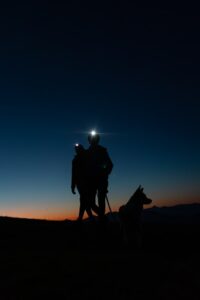The Essentials Every Hiker Needs
If you are planning to hike, even if it is only for a day, it is a good habit to pack all the essentials. It’s true you might use only a few of them or none at all during a routine trip. But, if something goes wrong, you’ll really appreciate having them with you. Let’s take a look at all the things you should carry with you when going on a hike.

Food and Water
If your trip is going to belong, you should pack food for at least one extra day. If you’re figuring out how much water you’ll need to carry, consider that most people need about half a litre of water per hour while performing moderately strenuous activities. You should pack items that do not need to be cooked or that have a long shelf life like bars, and nuts.
First Aid Kit
It is extremely important to carry a first-aid kit and know how to use its contents. Buying pre-assembled first-aid kits saves you the time and hassle of assembling them yourself, but many people like to customize them to meet their particular needs. There should be treatments for blisters, bandages of various sizes, tape, disinfectants, pain medications, and pens and papers in any kit.
Navigation Devices
In order to navigate the backcountry these days, you will need a compass, a map, or a GPS device and a personal locator beacon. Even if you are going on a really short hike in a familiar area these are some of the navigation equipment you should always have with you.
Fire and Firestarter
The supplies you need to start and maintain a fire during an emergency need to be readily available to you. Most people use a disposable butane lighter for this purpose, but matches can also be used if they are waterproof or stored in an airtight container. In wet conditions, firestarters are crucial to jump-start a fire. Firestarters should ignite quickly and sustain heat for more than a few seconds.

Light Source
Having a light source with you during the night is essential to finding your way through the wilderness. Travellers prefer to use a headlamp because it keeps their hands free so they can cook dinner or hold trekking poles. Make sure you keep spare batteries on hand or charge your light source prior to your hike.
Sun Protection
You should always take sunglasses, sunscreen and sun-protective clothing with you. In the short term, it can cause sunburn and/or snow blindness and in the long run, premature skin ageing, skin cancer, and cataracts. Make sure to pack up some lotions with SPF, hats and long-sleeved clothes in your backpack even if you are hiking during a cloudy or rainy day.
Blade
Knives are important for gear repair, food preparation, first aid, kindling, and other emergency needs. Multitools and knives with multiple functions have things like a can opener, a flathead screwdriver, and/or scissors that fold up. More options in your knife or tool are necessary if your needs are complex.
Shelter for Emergencies
If you become stranded along the trail or become injured, carry an emergency shelter to keep you dry and protected from wind and rain. An ultralight tarp, an emergency space blanket, a large plastic bag or a bivy sack are all possible options. Tents are only an efficient emergency shelter if they’re always carried.

